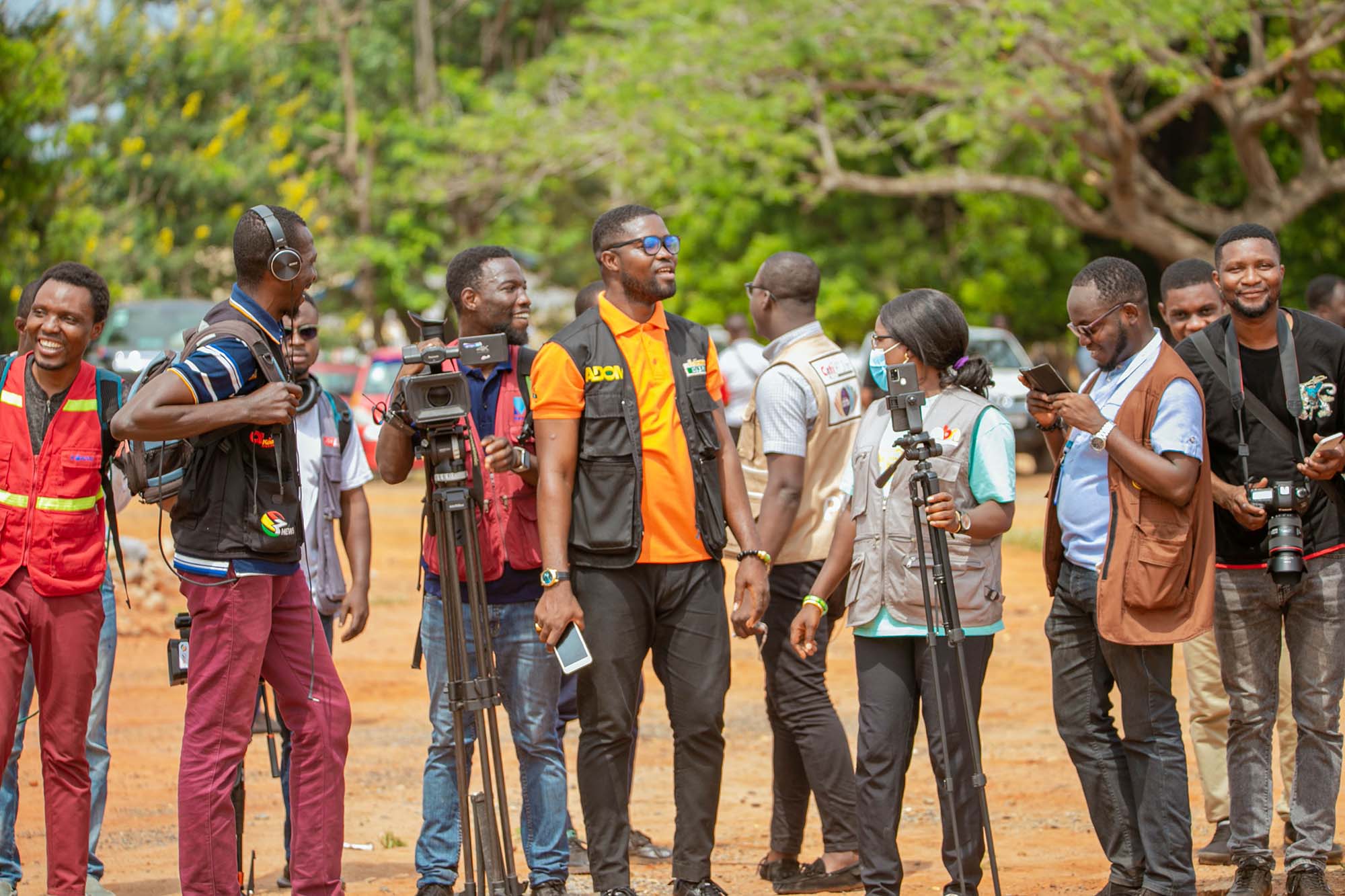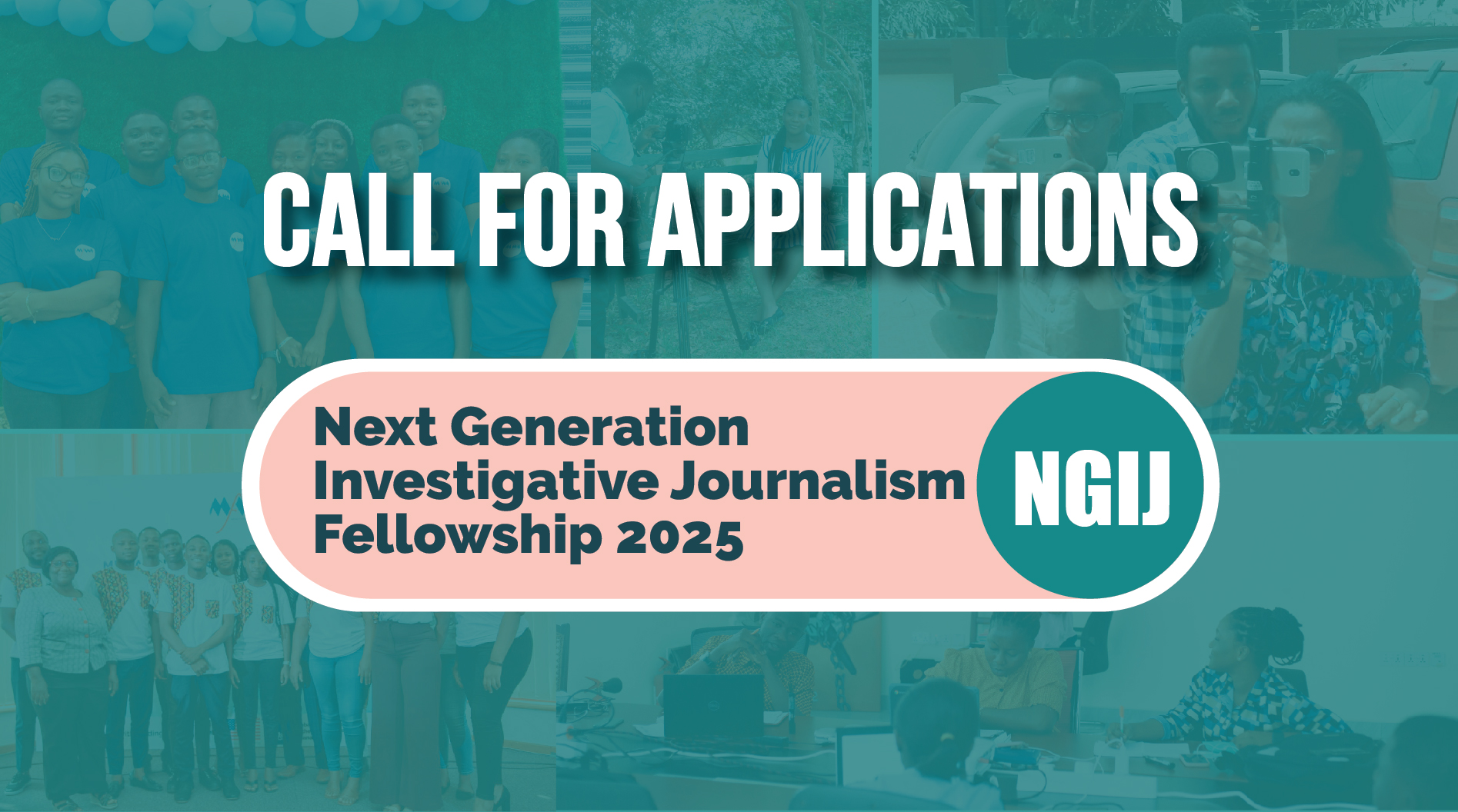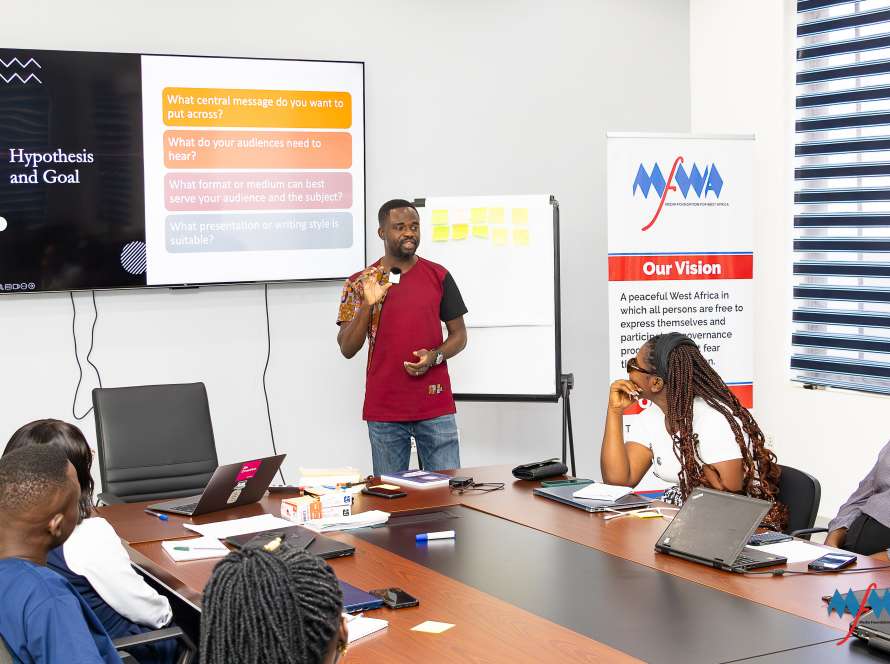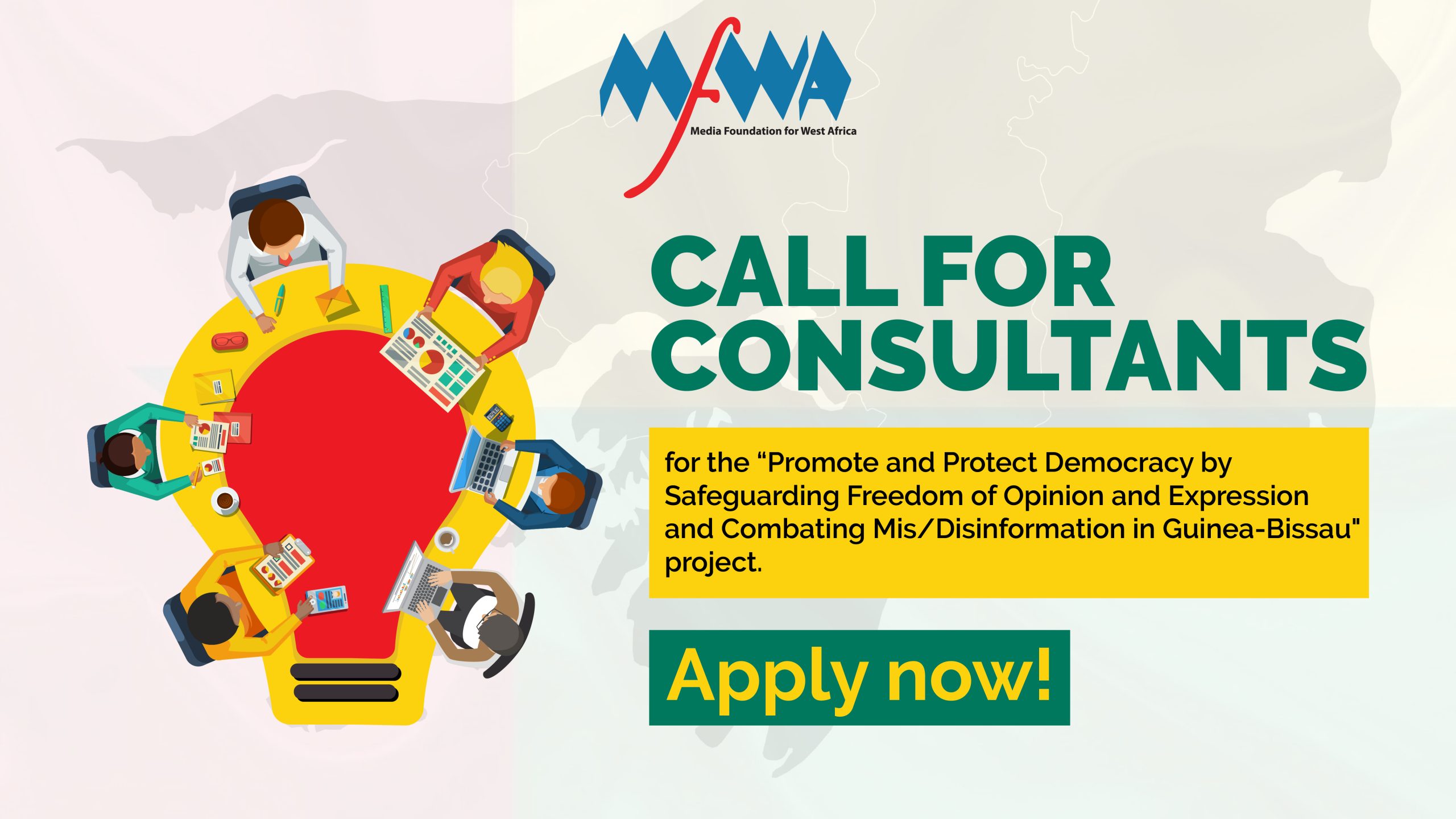The Media Foundation for West Africa (MFWA) is inviting applications from journalists in Benin, Ghana, Nigeria and Togo to apply for story grants to produce quality indepth and impactful stories on Digital Public Infrastructure (DPI) and Digital Public Goods and Services.
The story grants form part of the support being extended to journalists in the four target countries (Benin, Ghana, Nigeria and Togo) to produce impactful stories under the second phase of its Digital Public Infrastructure (DPI) Journalism Fellowship. The application is open to all journalists in the four countries, including the current DPI Fellows, DPI Journalism Fellowship Alumni and all journalists irrespective of media genre.
About the Digital Public Infrastructure Journalism Fellowship
The Digital Public Infrastructure (DPI) Journalism Fellowship, is a project of the MFWA, with funding support from, and in partnership with Co-Develop. The project seeks to empower media professionals with the knowledge and skills necessary to contribute effectively to the evolving digital landscape, ensuring that the benefits of Digital Public Infrastructure (DPI) and Digital Public Goods (DPGs) are widely understood and leveraged across West Africa. Specifically, the project trains journalists who are competitively selected across the region on the concepts of DPI/DPGs through a three- to six-month fellowship. The trainings prepare the beneficiaries to better understand and produce stories that elevate public awareness, stimulate debates, foster inclusivity, and encourage participation and uptake of DPI/DPGs issues across West Africa.
Under phase one of the project, 20 journalists from 10 countries in the region benefited from the Fellowship and improved media coverage and broadened public discourse on DPI/DPGs through the production of over 100 stories. Most of the published stories resulted in reactions from some government institutions and state actors in the focused countries aimed at addressing the issues highlighted in the reports.
Building on the achievements and gains from the first phase, the second phase seeks to further enhance the capacity and skills of beneficiary journalists to enable them do in-depth reporting on DPI/DPGs. The project is designed to target 60 journalists from four countries, Benin, Ghana, Togo, and Nigeria. The Fellowship will run for six months – three months of intensive trainings (virtual and in-person) from November 1, 2024, to January 30, 2025, and the following three months (February-April 2025) for story development and periodic peer-learning sessions.
The application for story production grants is open to past and present DPI Journalism Fellows from Benin, Ghana, Nigeria and Togo.
Eligibility
- Must be a journalist working in one of the four project countries – Benin, Ghana, Nigeria and Togo
- Must have a story idea on DPI/DPGs that have the potential to improve awareness; spark public and policy debates; and/or result in actions; statements or commitments from relevant stakeholders.
- Must have a track record of producing impactful stories
- Must have a letter of support from the journalist’s media house confirming the media outlet’s agreement to publish the stories that will be produced from the story grant
Areas of Interest
The DPI/DPGs stories that will qualify for grants must cover any of the areas outlined below:
- Educational/sensitization stories or documentaries about DPI/DPGs and their importance
- DPI and instant payment systems
- Collaboration between digital payment platforms and central banks – platforms, successes, challenges areas of improvement
- DPI/DPGs and issues of data protection, cybersecurity and fraud especially in digital payment sector
- How DPI/DPGs are facilitating financial inclusion
- DPI and mobile money – deployment, rollout, inclusions, challenges and related issues
- Country-level comparative analyses about DPI/DPGs rollout – fees, successes, challenges, lessons, areas of collaboration, etc.
- Implications of taxes on instant payment systems and implication on financial inclusion
- Data exchange platforms and security issues
- Implementation of inclusion and safeguards in DPI/DPG deployment
- Demonstration of DPI/DPGs progress in the respective countries through case studies
- Educational/sensitization stories about the Universal Safeguards Framework
- Showcasing the economic value in the deployment of DPI/DPGs
- Procurement issues around DPI
- Other DPI/DPGs issues not mentioned above
Story Format
Stories can be in the form of print (newspapers and online) and/or broadcast (radio or television). Documentaries are encouraged.
How to apply
- Share your story pitch(es) on this form. The pitch must provide an idea about the topic and the story, the approach, possible sources for the story, and most importantly, the expected impact.
- Provide a budget for the story production with some details about the budget items
- Upload a signed consent letter from your media house
- Confirm your willingness to work with the DPI Journalism Fellowship Editors on your story
- Submit your application
Value of story grant
On the average, each story shall be entitled to an amount of USD300. The amount may be more or less depending on the story and its anticipated impact.
Application timeline
Applications will be assessed on rolling basis. Timeline for first set of grants: March 20, 2025.
Need additional information?
Kindly contact Vivian Affoah via vivian[@]mfwa.org or Paul Kofi Gozo via paul[@]mfwa.org with your English enquiries; and Delali Jean-Daniel Dessouassi via delali[@]mfwa.org with your French enquiries.






